Pets
/Home & Leisure
Colorado's Copper Creek wolf pack -- with new pups in tow -- is under scrutiny again after cattle killings
DENVER — Colorado’s first wolf pack since the species’ reintroduction in 2023 is once again under intense scrutiny after a series of cattle depredations in the Roaring Fork Valley.
Cattle killings in Pitkin County this summer have spurred calls in recent weeks to remove the entire Copper Creek pack — comprising two adults, three ...Read more
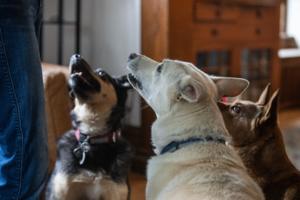
Some people are giving up their pets as costs rise
MINNEAPOLIS -- Julie Koch has seen 31 dogs come and go from her Minneapolis home over the last four years. She’s a foster for Ruff Start Rescue, which cares for animals across Minnesota.
Right now, she’s caring for a lovable 6-year-old white German Shepherd named Stone. He came to her from Texas in 2021 and was adopted in 2022. But in ...Read more
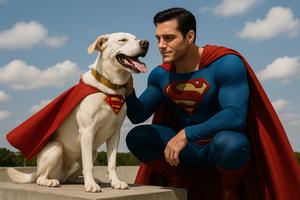
Krypto's legacy is everyone's super dog
Few characters in the Superman mythos carry as much emotional resonance as Krypto the Superdog. Introduced in the Silver Age of comics, Krypto has been everything from a whimsical sidekick to a deeply symbolic anchor of Superman's heritage. As a superpowered canine from Krypton, Krypto’s story has consistently paralleled the Last Son of ...Read more

Aging Gracefully: Caring for Your Senior Cat
By the time a cat reaches 10 years of age, many owners begin to notice subtle changes. Slower movements, longer naps, and a certain contemplative look in the eyes all signal the passage from adulthood into the feline golden years. As more cats live well into their teens and even twenties thanks to advances in veterinary care and improved ...Read more
Video
No body
Video
No body
Video
No body
Video
No body
Video
No body
Video
No body
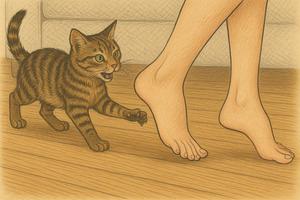
Why does my cat keep attacking my feet?
If you’ve ever walked barefoot across your living room only to be ambushed by a furry little missile with claws, you’re not alone. Countless cat owners have found themselves the target of ankle assaults, toe nibbles, or sneak attacks from under furniture. While the behavior may seem cute—or at least tolerable—when your kitten is small, ...Read more

Famous cats: Trim the Sailor Cat, Felix the Cat, and Grumpy Cat
From silent companions in royal courts to viral sensations in the age of memes, cats have captivated human hearts for centuries. While thousands of felines have played a role in myth, art, and media, a few stand out as icons whose influence transcends their nine lives. Three such cats—Trim the Sailor Cat, Felix the Cat, and Grumpy Cat—each ...Read more

New dog-sized dinosaur unearthed from Colorado rock formation
DENVER — A new dinosaur species unearthed from the famed Morrison Formation in Colorado has been identified, according to a journal article published last week in Royal Society Open Science.
Scientists have named the speedy, dog-sized dinosaur Enigmacursor mollyborthwickae, according to the article. Its skeleton, or what fossil hunters could ...Read more
How a deaf puppy is learning sign language to save his life
CHARLOTTE, N.C. -- Frankie, a blue-eyed Catahoula Leopard Dog, was just a few weeks old when he was found abandoned on the side of a Charlotte street — one of more than 6 million animals dumped across the U.S. each year. Weighing only 7 pounds and riddled with hookworms, he was taken in by Angels to the Animals, a rescue group that hoped to ...Read more
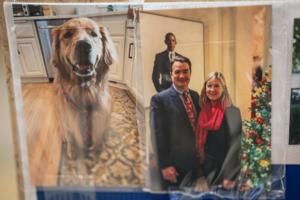
Gilbert, the Hortmans' golden retriever, was 'too happy-go-lucky' to be a service dog
MINNEAPOLIS — Gilbert, the 4-year-old golden retriever trained by state Rep. Melissa Hortman to be a service dog, was too friendly for a working dog’s life. So, he became the family pet, much to Hortman’s delight.
“A lot of dogs just want to be around people — all people” — a wonderful trait that Gilbert shared, but a less-...Read more
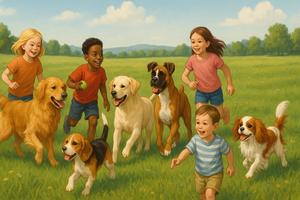
Five Dog Breeds That Make the Best Family Pets for Households With Young Kids
When choosing a dog for a household with young children, temperament, energy level, and trainability are key factors. For families with kids under 10, the ideal canine companion is patient, friendly, and adaptable to a bustling environment. While every dog has its own personality, certain breeds are particularly well-suited for young families ...Read more
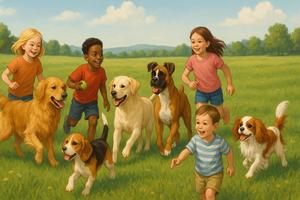
Five Dog Breeds That Make the Best Family Pets for Households With Young Kids
When choosing a dog for a household with young children, temperament, energy level, and trainability are key factors. For families with kids under 10, the ideal canine companion is patient, friendly, and adaptable to a bustling environment. While every dog has its own personality, certain breeds are particularly well-suited for young families ...Read more
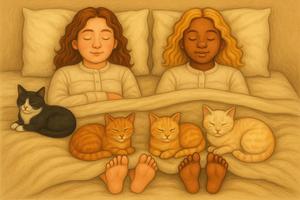
In a fast-moving world, cats offer something refreshingly simple
For millions of people around the world, cats are more than just pets — they are companions, emotional support systems, and even unofficial therapists. Though cats are often seen as aloof or independent, research increasingly shows that owning a cat can have measurable benefits for both mental and physical health.
One of the most widely ...Read more
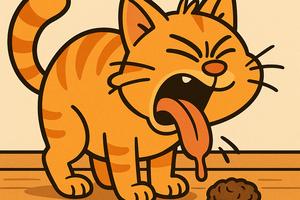
Cats and hairballs are simply a fact of life... if you're a cat
Cats are often praised for their elegance and independence, but pet owners know they come with a few less glamorous realities. One of the most common and messy of these is the hairball. While the sight and sound of a cat hacking up a hairball may be unpleasant, the issue is natural and usually harmless. Still, understanding what hairballs are, ...Read more
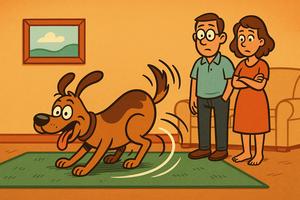
What to do when your dog does the booty scoot
When a dog suddenly scoots its rear end across the floor, many pet owners respond with laughter, confusion, or mild horror—especially if it’s happening on a freshly cleaned carpet. The behavior, commonly referred to as “boot scooting,” may look comical, but it often signals that something is bothering the dog’s backside. While an ...Read more







